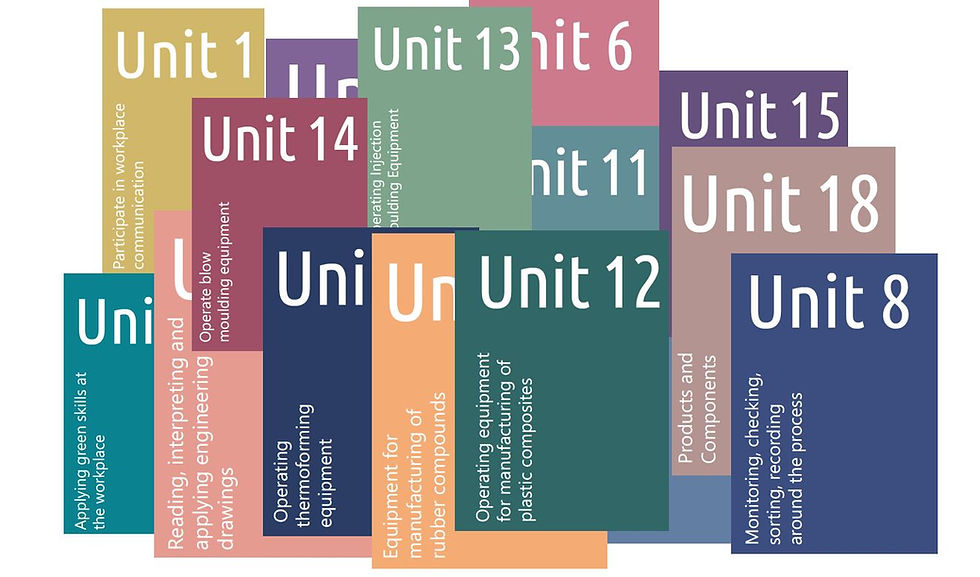Digital Transformation in Europe
- European Plastics Converters
- Mar 12, 2019
- 3 min read
Disruptive technologies and digitalization are changing the industry on a global scale. In order to remain competitive, Europe needs to invest more in its workforce by increasing talent pool and by creating conditions for people to acquire new skills. Moreover, the European Commission identified a lack of skills as a bottleneck in transforming manufacturing. There are increasing skills gaps and mismatches related to digital and high-tech key enabling technologies.
Companies across Europe are reporting difficulties in finding employees not only with high-level skills but with skills fit for the current markets. Skills needs must be better anticipated to manage change, nurture new types of work and strengthen social cohesion[1]. Currently, European businesses are not taking full advantage of many advanced technologies or the innovative business models offered. The state of the digitisation of industry varies across sectors, particularly between high-tech and more traditional areas, and also between Member states and regions. Moreover, there are also huge disparities between large companies and SMEs.
The digital skills are a major priority for Europe. The demand from EU industry and enterprises for new types of skills highlight the need to reskill and reemploy the redundant workforce. The widening digital skills gap will have an impact on the ability of EU businesses and governments to benefit from the opportunities of digitalisation.
The goal of the European Commission is to increase the EU talent pool and foster the acquisition of new skills with a focus on new technologies. Identified priorities are high-tech skills and related leadership capabilities. The spread of digital technology has an impact on the European labour market and the type of skills needed in the economy and society.
The digital technology is changing the structure of employment, leading to the automation of "routine" tasks and to the creation of new and different types of jobs or fundamentally changing the existing jobs. Moreover, it is leading to the need for more skilled ICT professionals in all sectors of the economy and is creating a need for digital skills for nearly all jobs where ICT complements existing tasks. In addition, the digital technology changed traditional learning paths by fostering online communities, by enabling personalised learning experiences, by supporting the development of soft skills such as problem-solving, collaboration and creativity.
The Commission is continuing to work on a set of measures to support the modernisation of Vocational Education and Training (VET) programs, in line with the policy priorities defined in the 2015 Riga Conclusions. The Riga Conclusions call for developing a strong partnership with complementary partners and other relevant stakeholders, promoting excellence and innovation in VET and using the learning outcomes approach. Furthermore, they encourage the promotion of work-based learning integrated into the school-based programme, strengthening key competencies, enhancing access to quality vocational training by designing an innovative VET programme, etc.
In 2016, the European Commission launched the first industry-related initiative of the Digital Single Market[2] initiative. The Digital Single Market includes the use of policy instruments, financial support, coordination, and legislative powers to trigger further public and private investments in all industrial sectors. One of the five pillars of Digital Single Market is to prepare Europeans for the digital future by adapting the workforce and the education and learning systems.
The European Commission identified new curriculum guidelines as one of the solutions for increasing the EU talent pool and fostering the acquisition of new skills. There is a need to adapt the European workforce and the education and learning systems, and this can be done with new vocational education and training that is designed to promote new types of skills, such as digital skills, green skills, entrepreneurial competencies, etc.
UPSKILL project aims to enhance the capability of European VET systems to respond to the plastics sector-specific labour market needs by designing, piloting and implementing an innovative vocational training programme.
More specifically the project will:
· enhance the quality of vocational training;
· improve the competence of teachers and plastic machine operators;
· make VET curriculum more relevant to the labour market;
· provide students and teachers with the opportunity to use digital materials
All the goals of the project are aligned with the Digital Single Market initiative, and overall goal of the European Commission to increase the EU talent pool and foster the acquisition of new skills. Furthermore, the project supports modernisation of VET programs in Europe, as defined in the 2015 Riga Conclusions.





Comments